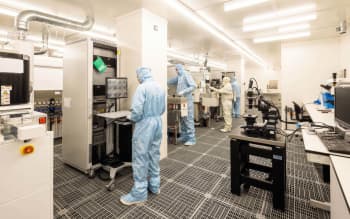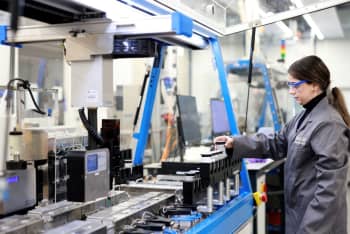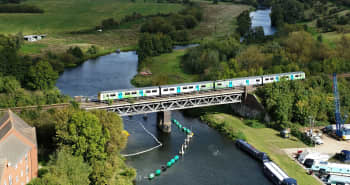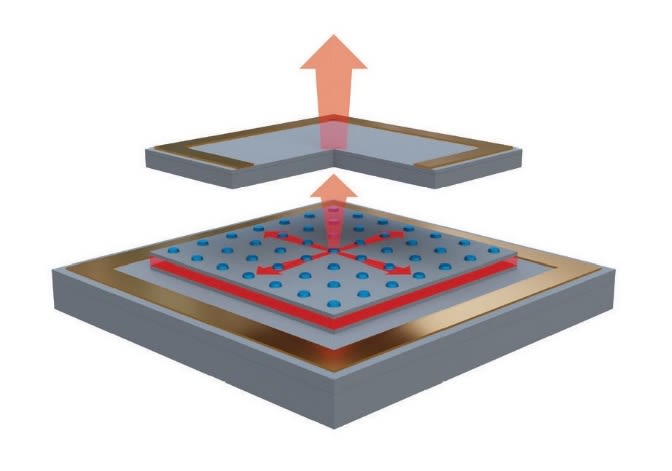Driving Regional Growth:
The impact of EPSRC
research investment in the UK

Foreword
Dr Andrew Bourne, Executive Director of Partnerships at the Engineering and Physical Sciences Research Council (EPSRC)
Excellent research and talented people attract investment. Whether it is discovery science to advance our understanding of the world or to tackle society’s greatest challenges, research leads to new highly skilled jobs, increased productivity and economic growth. This means where research takes place, and where its benefits accrue, is as important as how it is conducted. Economic and societal impact is delivered by all scales and types of EPSRC investment; from network grants to support new interdisciplinary research communities and topics, through to schemes supporting business-academic collaboration at maturity and scale, such as EPSRC’s Prosperity Partnerships, or Innovation and Knowledge Centres (IKCs).
Our Regional Engagement Team works with strategic and civic partners across the UK, fostering collaborative working between academic researchers, businesses, charities and civic bodies. This collaboration creates outcomes and impacts that underpin local clusters and inform local policy, bringing short- and long-term benefits to regional and local economies and communities.
Understanding place also provides insights into the subtleties and complexities of relationships between research, local businesses and civic stakeholders. Local and regional intelligence informs our broader EPSRC strategy, ensuring continued research and innovation excellence at a national and international level, and support for sustainable growth.
This publication presents some of the highlights arising from EPSRC’s investments in places across the UK.
Dr Andrew Bourne, Executive Director of Partnerships, EPSRC
Dr Andrew Bourne, Executive Director of Partnerships, EPSRC
Case study:
Leading global cybersecurity in Northern Ireland
The Centre for Secure Information Technologies (CSIT) at Queen’s University Belfast has grown into one of the world’s largest centres in cybersecurity and a recognised global leader in cybersecurity research. CSIT, now in its third phase of funding from EPSRC, is at the heart of an innovation ecosystem in Northern Ireland.
Initially established in 2009 as one of seven EPSRC-sponsored Innovation and Knowledge Centres, and with co-funding from Innovate UK and Invest Northern Ireland, CSIT now comprises more than 125 companies employing approximately 2,750 cybersecurity professionals in the Belfast area, supporting over £237 million gross value added to the Northern Ireland economy.
The centre works with a range of industrial partners from UK-based SMEs to multinational corporations, across technology areas including device security, video analytics, advanced cryptography, malware detection, and industrial control system security. It has leveraged £10 million government funding for a Cyber-AI Hub of R&D-intensive cybersecurity companies. The hub is investing in AI-based security technologies, and will drive growth in the companies and benefit the Northern Ireland economy.

Place Based Impact Acceleration Accounts
Launched in 2022, Place Based Impact Acceleration Accounts (PBIAA) are an integral part of EPSRC’s ambitions to strengthen clusters and partnerships across the UK. Fostering greater collaboration and networking between researchers, business and civic bodies delivers research and skills vital to the long-term economic and social prosperity of communities and regions in the UK.
Investing over £41 million in its first round, EPSRC is supporting 10 new consortia-led projects to boost economic growth and address regional needs across the UK. Although still in the early stages, projects supported by PBIAAs are being developed to encourage closer partnership working, ultimately bringing short- and long-term benefits to regional and local economies and communities, including new jobs, skills development, private investment, growth of small and medium enterprises, and more. They are creating an opportunity for academics and civic actors to collaborate and support the development of local industry and places.
Case study:
Innovating in agri-tech in the East Midlands
The LINCAM cluster project aims to make regions in the East Midlands an agri-tech gateway for the world. The University of Lincoln in collaboration with the University of Cambridge is developing a portfolio of agri-food technology research, training and knowledge exchange activities.
The agricultural sector in the Greater Lincolnshire and North Cambridgeshire region supports 88,000 jobs, generates gross value added of £3.8 billion and farms more than 50% of the UK’s grade 1 land.

Case study: Building a global photonics sector in Scotland
Photonics is the hidden technology of light that underpins the economic prosperity and wellbeing of modern society, from communications, through manufacturing to medicine. The Photonics & Quantum Accelerator (PQA) brings together researchers from the Universities of Glasgow, Heriot-Watt, St Andrews and Strathclyde, with a number of local authorities and industry bodies to advance the growth of the photonics sector in Scotland’s Central Belt.
Photonics currently contributes more than £1.3 billion to the Scottish economy, and the PQA aims to support tripling this by 2030, through the accelerated development of photonics and quantum technologies. The PQA will fund over 60 collaborative projects, with the objective of producing at least five new spin outs and generating multi-million investment into the sector. To support this industrial growth, the PQA will also boost the future workforce, upskilling local talent to give enterprises expert staff at all levels. This will enable Scotland to continue to play a major role on the world-stage where there is access to international markets, investment and supply chain partners.

Case study: Decarbonising the food supply system in West London
A consortium led by Brunel University of London together with Harper Adams University and civic partner West London Business is collaborating with food manufacturers in West London to reduce the emissions of food supply systems.
The Park Royal Net Zero programme is based at the Park Royal Industrial area, one of the largest employment sites in the UK, with 1,700 businesses, employing 5.3% of West London’s workforce and producing 30% of London’s food.
The project aims to reduce carbon cost, improve resilience, and drive economic growth in the food supply systems passing through Park Royal.

Case study:
Translating med-tech research into products in Yorkshire
Yorkshire Med Tech will support the translation of medical technologies research into new clinical products and services, helping grow the regional economy.
Based in West and South Yorkshire, it brings together the University of Leeds and the University of Sheffield with the West Yorkshire Combined Authority and the South Yorkshire Mayoral Combined Authority to foster closer working.
It will help drive regional economic growth, with new innovations being adopted by regional industry, creating high value jobs and unlocking private sector investment in research and development, supporting a projected £3 billion per year industry beyond 2035.

Boosting the regions
EPSRC is ensuring that economic growth is felt right across the UK by investing in research in the regions and nations. Alongside research funding and skills development in universities, our investments support engagement with organisations in the regions, including businesses, charities, and civic bodies, enabling them to make the most of the research and training happening on their doorsteps.
Case study: Semiconductor cluster for South Wales
Compound semiconductors are materials that can produce faster, more efficient electronic components, adding functionality and, in many cases, replacing traditional silicon semiconductors. A high-tech cluster of academics and companies in South Wales is creating compound semiconductors and creating £381 million gross value added for the Welsh economy.
The Institute for Compound Semiconductors (Cardiff University) and the Centre for Integrative Semiconductor Materials (CISM, Swansea University) are collaborating on an EPSRC Place Based Impact Acceleration Account (PBIAA), which is driving impacts from their research portfolios directly into businesses within the cluster through collaborative activities, as well as addressing a skills shortage in the sector.
The work is complemented by Cardiff University’s, EPSRC funded Centre for Doctoral Training in Compound Semiconductor Manufacturing and builds on a legacy of UKRI funding in the region that extends over the last 10 years.
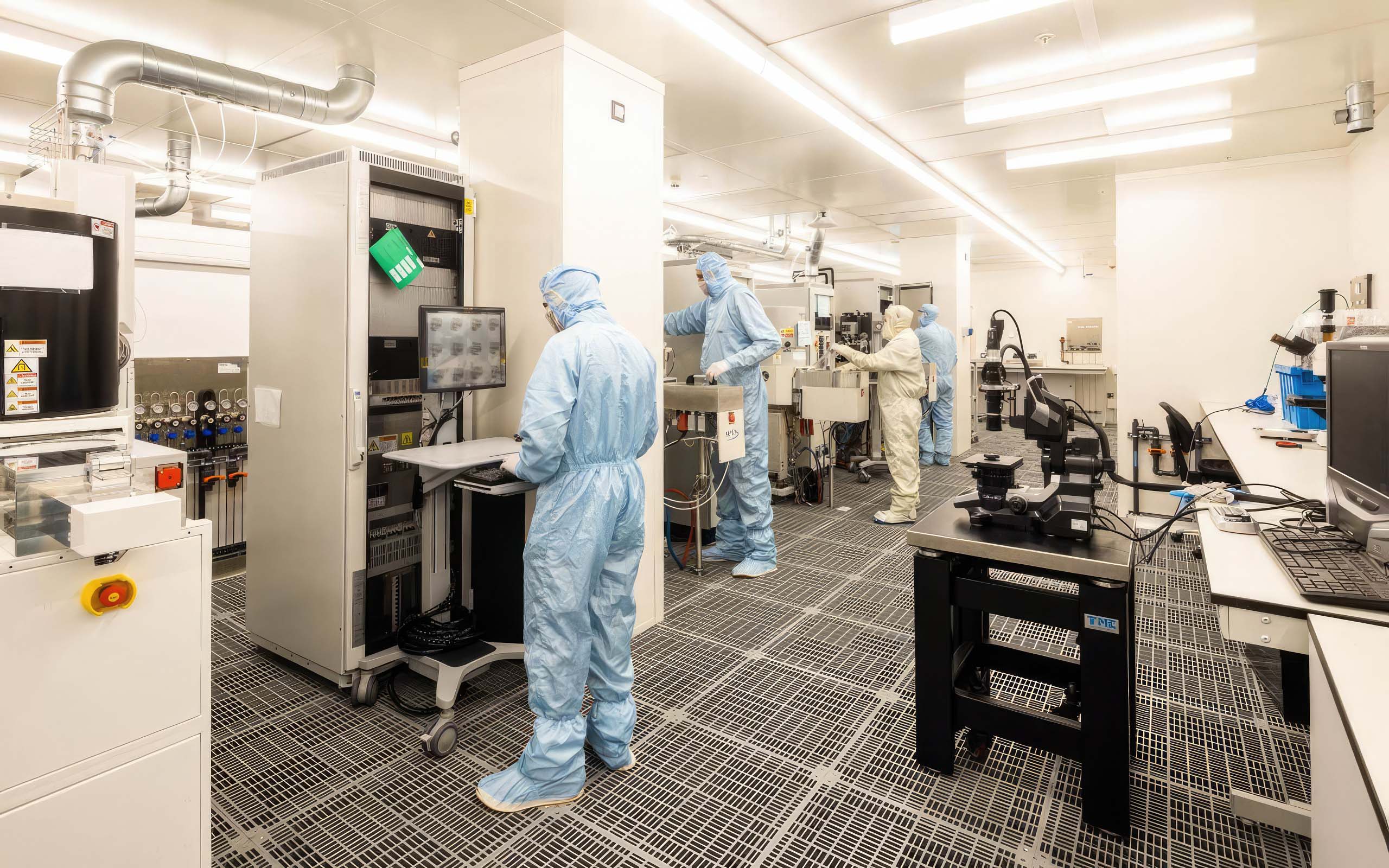
Case study:
Encouraging under-represented groups into STEM in the North East
The UK’s highly skilled engineers help boost productivity and competitiveness globally, yet many children from less affluent areas – particularly girls – do not consider pursuing STEM careers.
Through the EPSRC Centre for Doctoral Training in Renewable Energy Northeast Universities (ReNU), researchers from Northumbria University developed public engagement workshops to boost interest among children and increase recruitment of women onto construction apprenticeships. The integrated approach encompassed schools through to STEM undergraduates and doctoral carbon champions.
ReNU has trained above average numbers of female PhD students relative to EPSRC benchmarks and is now building on this success by focusing on additional under-represented groups through the innovative ReNU+ programme, which was recently awarded funding through EPSRC’s Collaborative Doctoral Training Account.
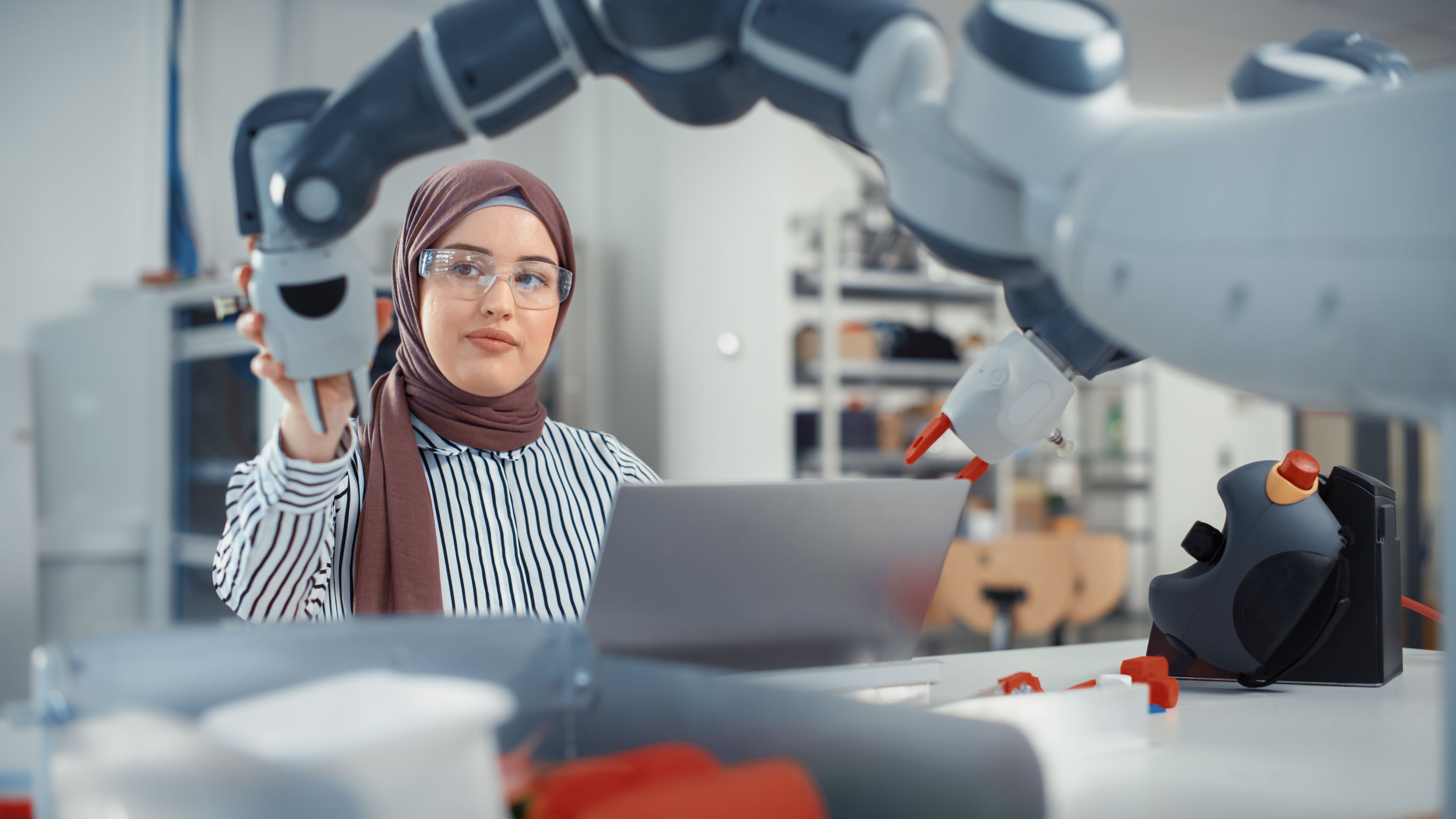
Case study:
Fast-tracking new products to market in Liverpool
Working in partnership with University of Liverpool, major consumer goods company Unilever was able to scale up and manufacture a new polymer in just two years, significantly shortening the time to product launch and generating an unprecedented return on investment.
Twenty years of EPSRC funding and a legacy of institutional leadership in materials chemistry at University of Liverpool has translated into the £81 million Materials Innovation Factory (MIF), with investment from Unilever and Research England. MIF brings together academics with small- and medium-sized enterprises and major international companies to discover and develop innovative new materials, such as pharmaceuticals, performance coatings and energy materials.
MIF is a partner of the Henry Royce Institute and hosts numerous world-leading programs focussed on new methods for materials discovery, including an EPSRC Centre for Doctoral Training in Digital and Automated Materials Chemistry, the Leverhulme Centre for Functional Materials Design, and the EPSRC AIchemy Artificial Intelligence hub for chemistry co-hosted with Imperial College London.
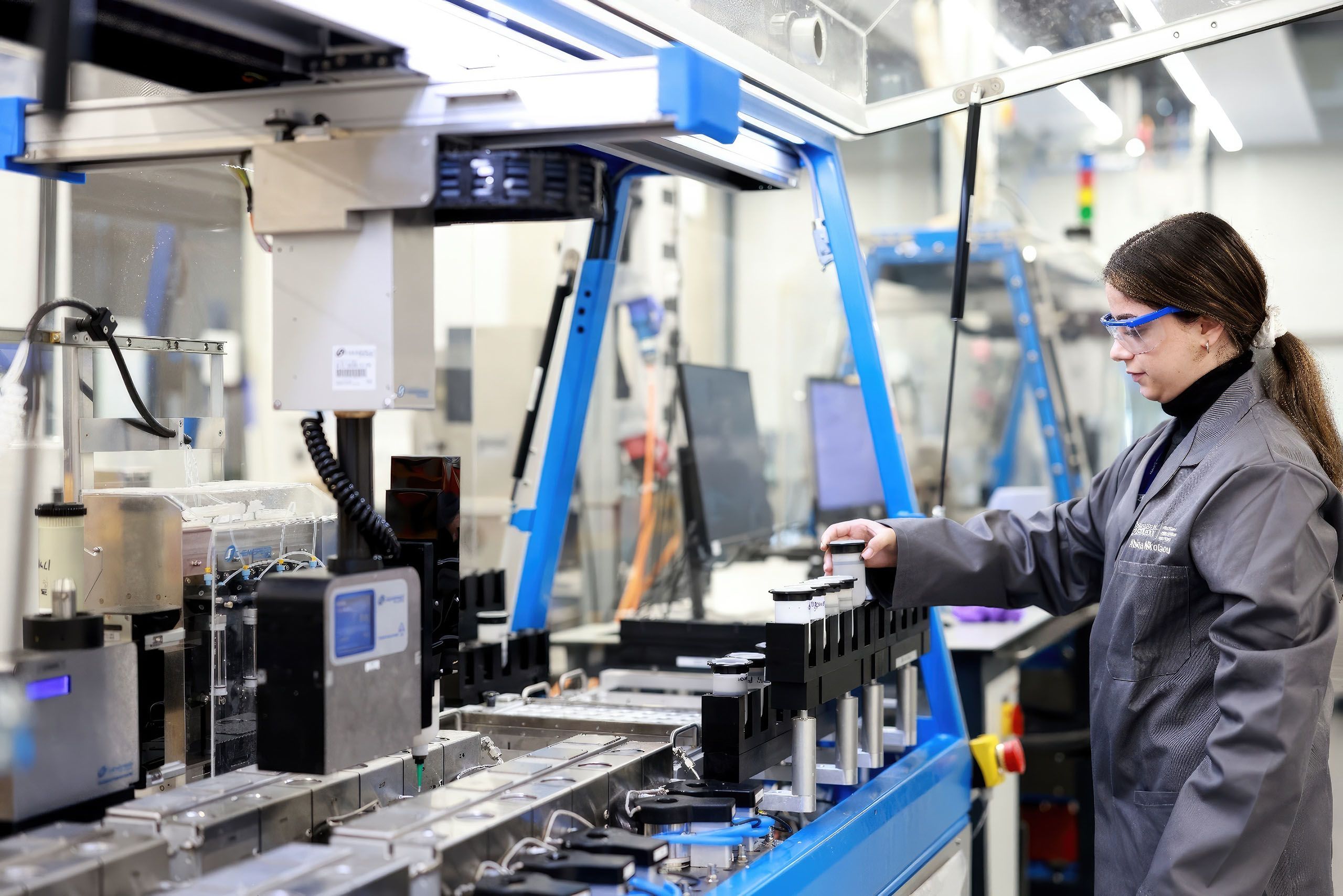
Case study:
Cambridge spin-out creating sustainable dyes
Colorifix – a University of Cambridge spin-out company – is creating more sustainable textile dyeing and fixing by replacing industrial chemistry with biology-based processes. The company, co-founded in 2016 by EPSRC-funded synthetic biologist Dr Jim Ajioka and former postdoctoral researcher Dr Orr Yarkoni, has received £25 million in equity and established partnerships with fashion companies such as H&M and Pangaia.

Local intelligence, national strategy
EPSRC’s regional engagement team is based across the UK and leads engagement with a diverse local stakeholder base – including civic partners, devolved government and affiliated bodies – putting EPSRC in touch with what is going on at the coalface of local research and innovation ecosystems.
The team’s focus on understanding places, rather than scientific portfolios, provides unique insights into universities as part of their local context and local priorities. It generates a more complete picture of how universities contribute to their local economy and industrial sectors, as well as a greater understanding of relationships with businesses and civic stakeholders. This approach enables EPSRC to better assess where and how best to add value.
The team’s local intelligence informs nationwide EPSRC activity, for example playing an important role in facilitating networking both within and between regional ecosystems.
Our Heads of Regional Engagement work alongside other colleagues in EPSRC, particularly those with a focus on university and business engagement, and across UKRI to ensure a joined-up approach across disciplines and from discovery through to innovation.
Case study:
Putting NI decision makers in touch with renewable energy research
Industry and policymakers in Northern Ireland gained insights into the latest research in energy generation from renewable sources, thanks to the EPSRC regional engagement team.
Energy stakeholders in the NI Civil Service, industry and professional bodies were introduced to research by the national Supergen Hubs at an event held at Queen’s University Belfast in November 2022. Engaging with researchers and managers provided an opportunity for key decision makers to understand the opportunities arising from Supergen investments and allowed direct engagement and partnership with the hubs, including the Supergen Energy Networks and Supergen Bioenergy.
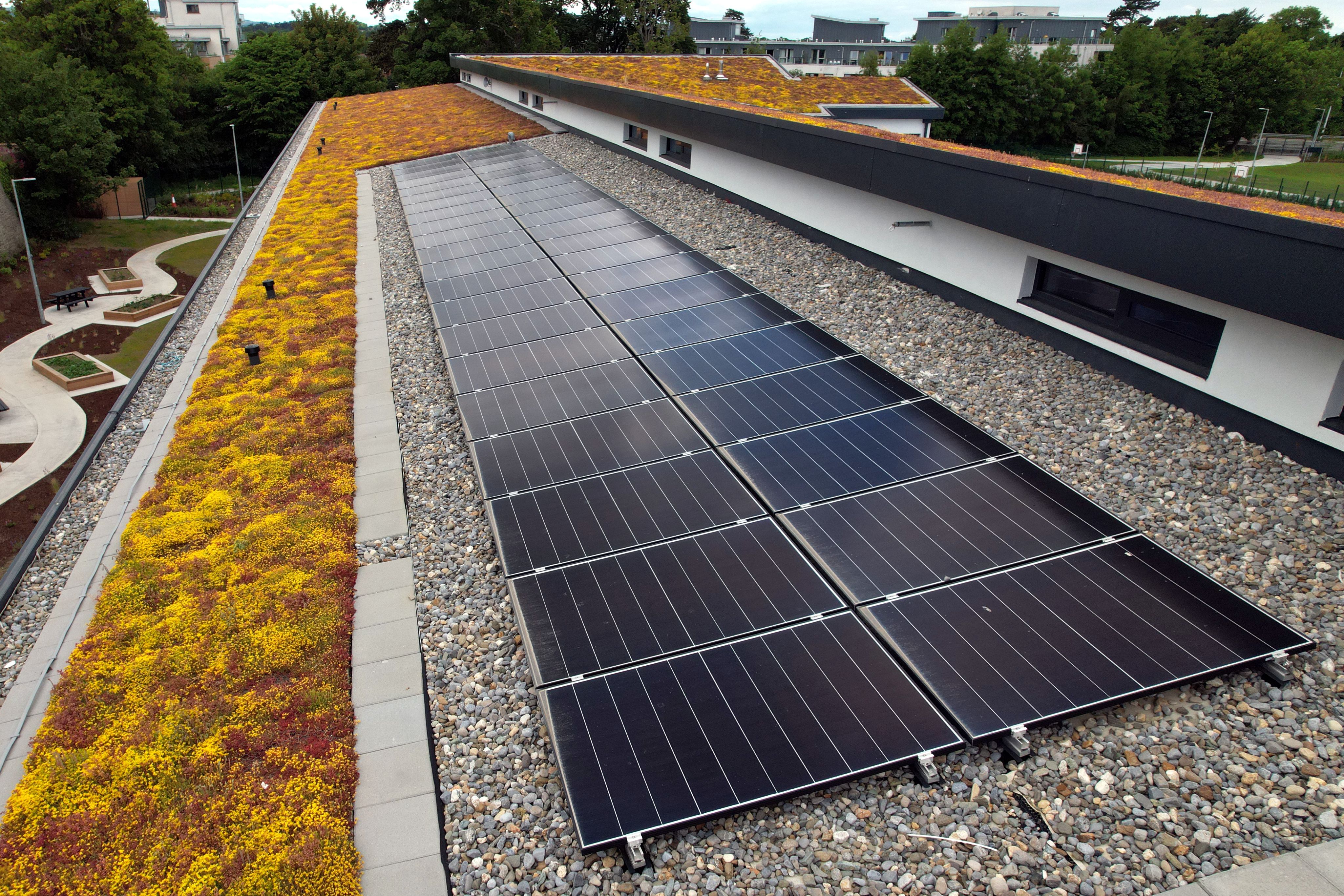
Case study:
Network tackling wicked problems in financial services
An EPSRC-funded financial technologies network aims to bridge the gap that currently exists between research in universities and the needs of the financial services industry across the UK. Engagement with regional clusters highlighted a common disconnect between these clusters and their local academic communities, leading EPSRC to identify an opportunity to forge these much-needed connections. Our investment in the £2.5 million UKFin+ programme aims to grow a UK-wide network to increase collaboration within and across regions between academics and industry. Led by academics from the University of Birmingham, Imperial College London, the University of Edinburgh and Cardiff University, the network will tackle so-called wicked problems – complex and interdependent challenges that require responses from across sectors and disciplines.

Partnerships delivering impact across the UK
In 2023/24 around half of EPSRC’s awarded grants included non-academic project partners. These partnerships with businesses, civic bodies and other organisations bring economic and societal benefits to the UK’s towns and cities.
EPSRC also runs schemes designed to promote such collaborations, such as Prosperity Partnerships, which support co-investment with businesses in projects of importance to them.
Case study:
Empowering researchers to decarbonise rail transport
The feasibility of introducing fleets of hydrogen trains to support rail decarbonisation has been demonstrated by EPSRC-funded research.
The HydroFLEX project, a collaboration between the University of Birmingham and British rolling stock owner Porterbrook, developed the UK’s first full-scale hydrogen train, which attracted over £10 million in additional investment from Porterbrook.
Built and tested in the West Midlands at the Long Marston Rail Innovation Centre, the fully developed HydroFLEX train was showcased during COP26 and was the first UK train to safely travel through a tunnel on hydrogen power. The research also underpinned the creation of Vanguard STS, a spin-out company developing hydrogen and battery solutions to decarbonise transport systems.
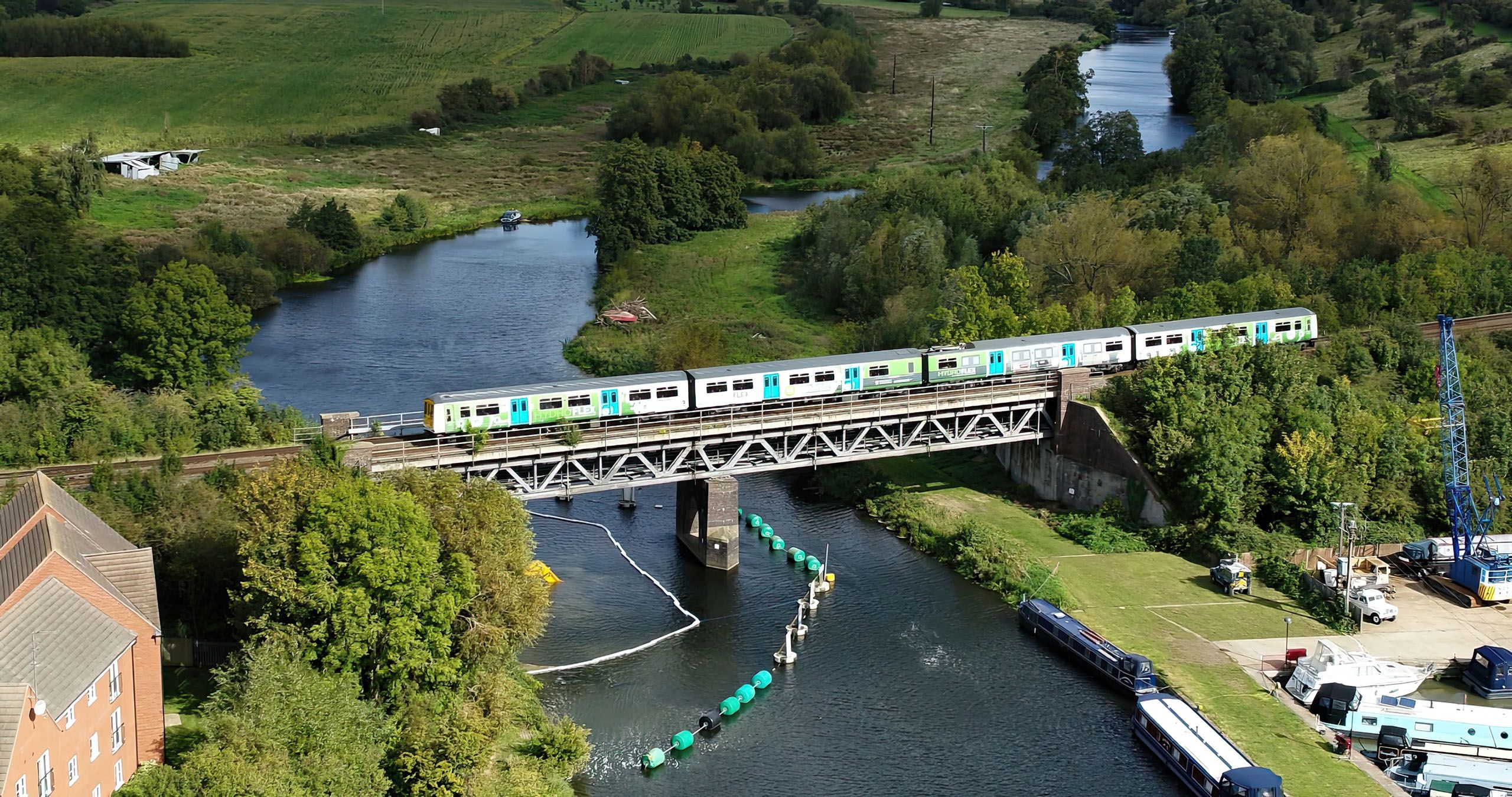
Case study:
Informing flood risk strategies
A high-resolution flood risk assessment by the Centre for Water Systems at the University of Exeter has informed flood defence investments.
With £425k of EPSRC funding, the team modelled a full range of flood simulations within required timescales in Torquay, Paignton and Brixham. The analyses included evaluation of the effectiveness of various adaptation measures, such as raising the existing flood wall or adding a secondary flood wall with different height options.
The results provided evidence that flood damage could be reduced from £78 million to £0.2 million by installing a secondary flood wall, safeguarding more than 3,000 people in 700 residential households, 330 commercial properties and 165 hotels. According to Torbay Council: “This scheme was approved by the Environment Agency and the government has confirmed investment of £3.4 million in critical infrastructure to improve the community resilience against flooding.”

Case study:
University collaborations in Scotland driving innovation
A collaboration of five universities in Scotland is enabling capacity-building in regional areas of strength. Heriot-Watt University, University of Glasgow, University of St Andrews, University of Edinburgh, and University of Strathclyde each hold EPSRC Impact Acceleration Accounts (IAA).
September 2024 saw the highest attendance to date of their annual joint IAA Impact Festival where more than 100 attendees were inspired by research impact projects, and forged connections with each other and organisations that can support and fund impact initiatives. The festival culminated with the launch of a second round of a joint funding call for cross-institutional impact projects.
Highlights from the IAA include:
- Rapid scaling of disinfectant production during COVID-19 thanks to University of Edinburgh researchers who developed an automated process that delivered a five-fold increase in production capacity, and a 93% decrease in
the time taken for the process. - Development of revolutionary ultrasonic scalpels for
robot-assisted surgery by University of Glasgow
spin-out Nami Surgical.
- A breakthrough in semiconductor laser research with
the development photonic crystal surface emitting laser technology by Vector Photonics, a James Watt School of Engineering spin-out.
- A new model for estimating the global use of polluting fuels for home heating, designed by a University of Glasgow statistician during an 18-month project with the World Health Organization, which is informing national policies around the world.
- Launch of a Supply Chain Expert Group to improve the cybersecurity of critical national infrastructure.

Find out more
If you are interested in any of the case studies and would like to find out more about the regional impacts of EPSRC research and innovation across the UK, contact one of our Heads of Regional Engagement or email the team at regional.engagement@ukri.org.
About EPSRC
EPSRC invests in world-leading research and skills to advance knowledge and deliver a sustainable, resilient and prosperous UK. We support new ideas and transformative technologies which are the foundations of innovations that improve our economy, environment and society.


